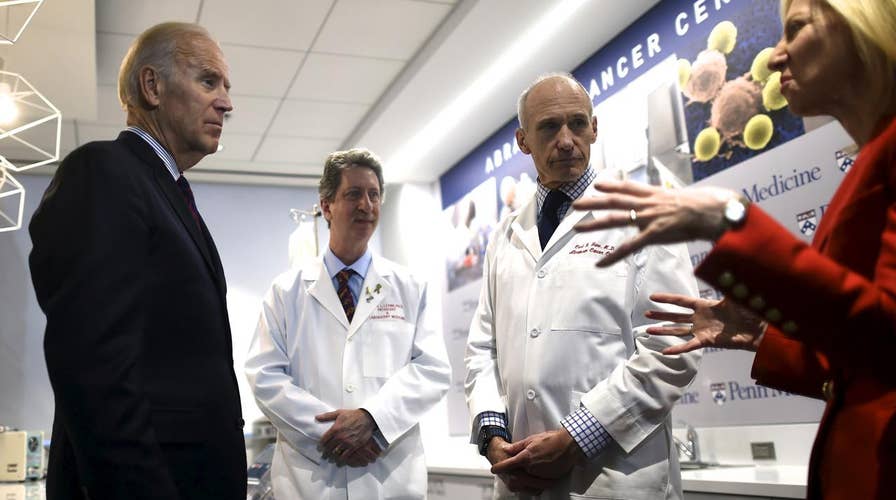Joe Biden’s cancer initiative tackles drug prices
In 2016, President Obama appointed Vice President Joe Biden to lead the national Moonshot Initiative to eliminate cancer. Today, Biden continues his efforts with the Biden Cancer Initiative, a non-profit with the same mission, to help double the rate of progress in preventing, detecting, diagnosing, and treating cancer.
In 2016, President Obama appointed Vice President Joe Biden to lead the national “Moonshot” initiative to eliminate cancer. Today, Biden continues those efforts with the “Biden Cancer Initiative,” a non-profit with a goal to double the rate of progress in preventing, detecting, diagnosing and treating cancer.
One of the focuses of the initiative is on clinical trials, and making them more accessible to all patients. Greg Simon, President of the Biden Cancer Initiative and cancer survivor, noted the challenges they need to overcome to make the transformative solutions needed to end cancer as it is known today.
"You shouldn't have to commute from where you live hundreds of miles to be in a [clinical] trial. So what we're talking about is creating more virtual trials where people can be tested where they live by having people train people where they live to do the exact same thing they would do if they were 300 miles away in a big hospital,” Simon said.
Having virtual trials may also help when it comes to data sharing.
“We have all this data on patients with cancer. We have genetic data. We have clinical data. If we were able to share it among all the different groups, we would have a huge data base to begin to really understand why some patients respond, why others don't," Dr. Elizabeth Jaffee, president of the American Association for Cancer Research, said.
“And more importantly, or as importantly, we would be able to learn more about the cancers,” she added.
However, not everyone in the cancer community is ready to share their research.
"The problem we run into is people say ‘why should I share my data? It's my data.’ Well it's actually not your data. The government funded it, it comes from patients most of it. It's our data if it's anything,” Simon said. “It's time to think about how we all work together to solve this instead of how I work in my lab and you work in yours.”
As Jaffee points out, the sharing of information is huge is helping answer cancer patient’s questions.
“I also personally know people who if they didn’t know me they would not know how to access the health care system, to access what they need and these are people with means. What about people who don’t have the means to access. So personally I think this is helping many groups of patients who are getting quicker information, quicker access to care and also support systems,” she said.
FOLLOW US ON FACEBOOK FOR MORE FOX LIFESTYLE NEWS
The sharing of information is crucial at a time when the cost of new anti-cancer drugs have skyrocketed more than five-fold from 2006-2015. According to a recent study, the monthly cost for anti-cancer drugs can range from $5,000 to $45,000.
"The people who determine the price are the drug companies, the insurance companies, and the pharmacy benefit managers. They need to figure out not only how to lower the price but how to limit what the copay is for any patient, any patient for any drug so that we no longer hear stories of people choosing hospice over bankruptcy because those are their only alternatives,” Simon said.
“Health is the one area where you go to pay for something and instead of asking what does that cost, they ask you who you are, what insurance do you have, are you military, Medicare, Medicaid, private insured, uninsured? And as they ask you those questions the price changes. So you don't know the price until it's too late. We have to fix that system,” he added.

